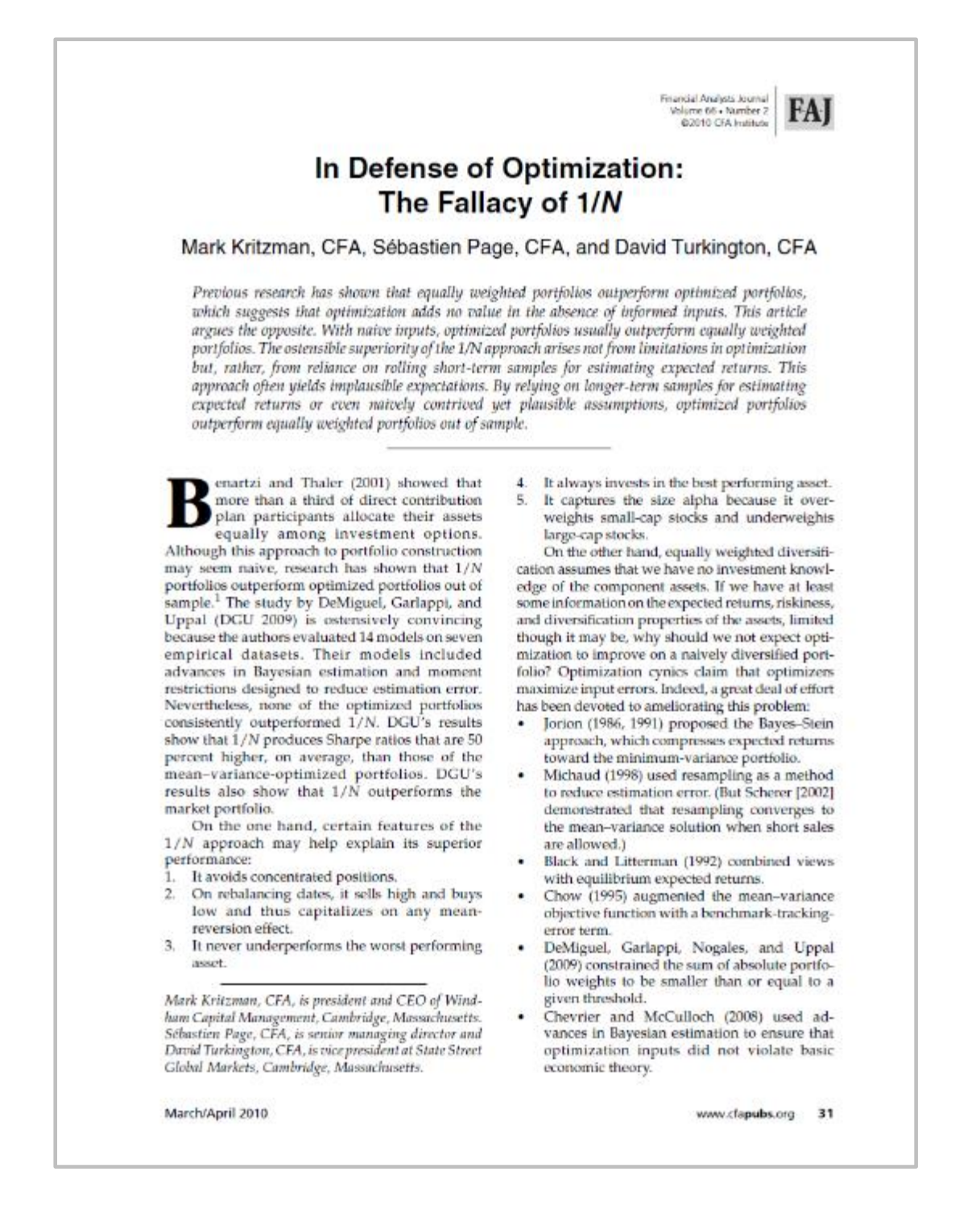
By Mark Kritzman, Sébastien Page, and David Turkington
Our 2010 research paper – recently flagged by the Financial Analysts Journal as among the 23 most influential articles in its 80 year history—defended how data-drive portfolio optimization adds value when it is thoughtfully applied.
Investors rarely aspire to mediocrity, yet critics love to dismiss the quest for an “optimal” portfolio as quixotic. In an article published in the Financial Analysts Journal 15 years ago, we challenged the notion that equal-weighting (the infamous 1/N rule) beats optimization. That claim implies all information including expected returns, risks, and correlations, is worthless. By digging deeper we found a reason those studies generated such a counterintuitive conclusion: they used naïve five-year return extrapolations as forecasts. When we applied simple, sensible expectations instead, mean-variance optimization delivered clear out-of-sample value across assets, industries, factors, and stocks. Optimization is far from perfect and it deserves to be extended to address real-world complexities, but it is a far better starting point than just giving up.


